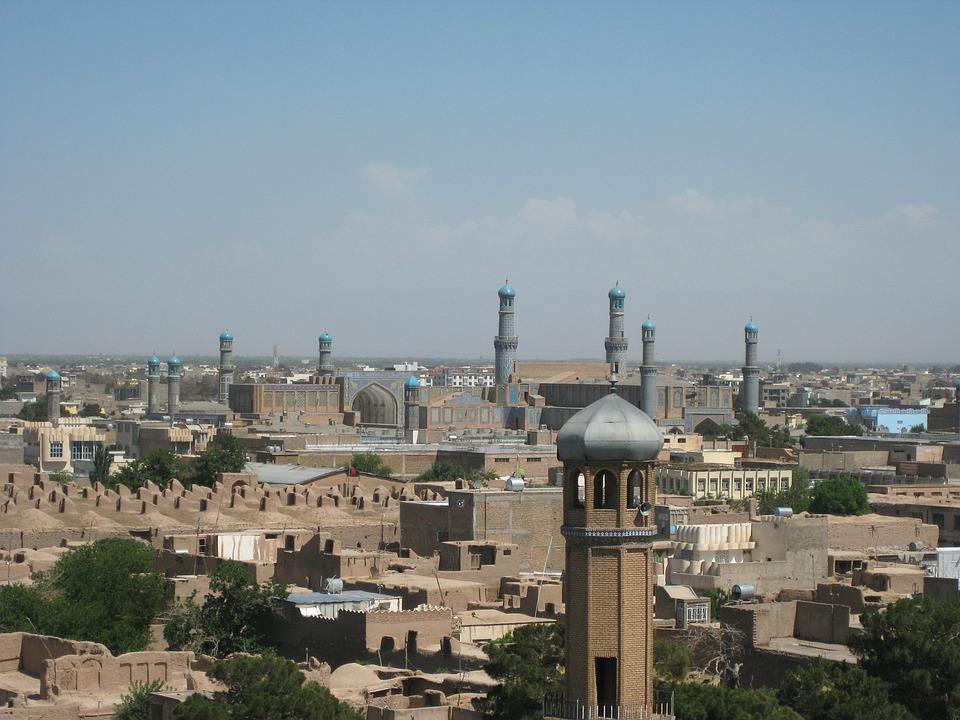Afghanistan is facing another domestic attack as one mosque in its capital of Kabul was hit by a grenade. The attack on the mosque has since injured six people.
Kabul law enforcement said that the Pul-e-Khisti mosque in Kabul was hit by a grenade blast minutes after the worshippers ended their midday prayers. The blast has injured six people so far, and the suspect was arrested at the scene. The mosque is also located in one of the densely populated parts of the Afghan capital, surrounded by shops and markets.
While no group has claimed responsibility for the attacks, the Taliban’s rivals, the Islamic State Khorasan Province, or ISIS-K militant group, have launched attacks in Kabul and other parts of Afghanistan.
The extremist group previously claimed responsibility for an attack on a military hospital in Kabul back in November of 2021. 19 people were killed in the attack. The group also claimed responsibility for the October suicide attack at a Shia mosque in Kandahar province, leaving around 60 people dead.
While the insurgent group has insisted that they have defeated the extremist group, analysts have said that ISIS-K remains a key security issue in Afghanistan and its new administration.
Back in February, the US offered up to $10 million for information that led to the location or identification of ISIS-K leader Sanaullah Ghafari.
Over the weekend, a separate attack was reported that left one person dead and 59 others injured from a blast at Afghanistan’s largest money-changing market, Sarai Shahzada, which is close to the mosque that was recently attacked.
The Taliban is seeking to gain international recognition following its return to power at the heels of the US withdrawal from Afghanistan in August of 2021. However, the international community has criticized the insurgent group’s move to curb the rights of Afghan women and girls in the country, similar to what was done during the group’s previous hardline rule.
Such restrictions include directing taxi drivers not to accept Afghan women commuting unaccompanied or who are not wearing the proper hijab or headscarf. The insurgent group has since frequently stopped lone female passengers and punished the drivers that accepted them.



 New York Legalizes Medical Aid in Dying for Terminally Ill Patients
New York Legalizes Medical Aid in Dying for Terminally Ill Patients  South Korea Assures U.S. on Trade Deal Commitments Amid Tariff Concerns
South Korea Assures U.S. on Trade Deal Commitments Amid Tariff Concerns  Iran–U.S. Nuclear Talks in Oman Face Major Hurdles Amid Rising Regional Tensions
Iran–U.S. Nuclear Talks in Oman Face Major Hurdles Amid Rising Regional Tensions  Jack Lang Resigns as Head of Arab World Institute Amid Epstein Controversy
Jack Lang Resigns as Head of Arab World Institute Amid Epstein Controversy  Pentagon Ends Military Education Programs With Harvard University
Pentagon Ends Military Education Programs With Harvard University  Trump Allegedly Sought Airport, Penn Station Renaming in Exchange for Hudson River Tunnel Funding
Trump Allegedly Sought Airport, Penn Station Renaming in Exchange for Hudson River Tunnel Funding  Japan Election 2026: Sanae Takaichi Poised for Landslide Win Despite Record Snowfall
Japan Election 2026: Sanae Takaichi Poised for Landslide Win Despite Record Snowfall  Trump Says “Very Good Talks” Underway on Russia-Ukraine War as Peace Efforts Continue
Trump Says “Very Good Talks” Underway on Russia-Ukraine War as Peace Efforts Continue  Missouri Judge Dismisses Lawsuit Challenging Starbucks’ Diversity and Inclusion Policies
Missouri Judge Dismisses Lawsuit Challenging Starbucks’ Diversity and Inclusion Policies  Trump Allows Commercial Fishing in Protected New England Waters
Trump Allows Commercial Fishing in Protected New England Waters  Nighttime Shelling Causes Serious Damage in Russia’s Belgorod Region Near Ukraine Border
Nighttime Shelling Causes Serious Damage in Russia’s Belgorod Region Near Ukraine Border  US Pushes Ukraine-Russia Peace Talks Before Summer Amid Escalating Attacks
US Pushes Ukraine-Russia Peace Talks Before Summer Amid Escalating Attacks  Ohio Man Indicted for Alleged Threat Against Vice President JD Vance, Faces Additional Federal Charges
Ohio Man Indicted for Alleged Threat Against Vice President JD Vance, Faces Additional Federal Charges  TrumpRx Website Launches to Offer Discounted Prescription Drugs for Cash-Paying Americans
TrumpRx Website Launches to Offer Discounted Prescription Drugs for Cash-Paying Americans  U.S. Lawmakers to Review Unredacted Jeffrey Epstein DOJ Files Starting Monday
U.S. Lawmakers to Review Unredacted Jeffrey Epstein DOJ Files Starting Monday  Trump Backs Nexstar–Tegna Merger Amid Shifting U.S. Media Landscape
Trump Backs Nexstar–Tegna Merger Amid Shifting U.S. Media Landscape  Trump’s Inflation Claims Clash With Voters’ Cost-of-Living Reality
Trump’s Inflation Claims Clash With Voters’ Cost-of-Living Reality 































